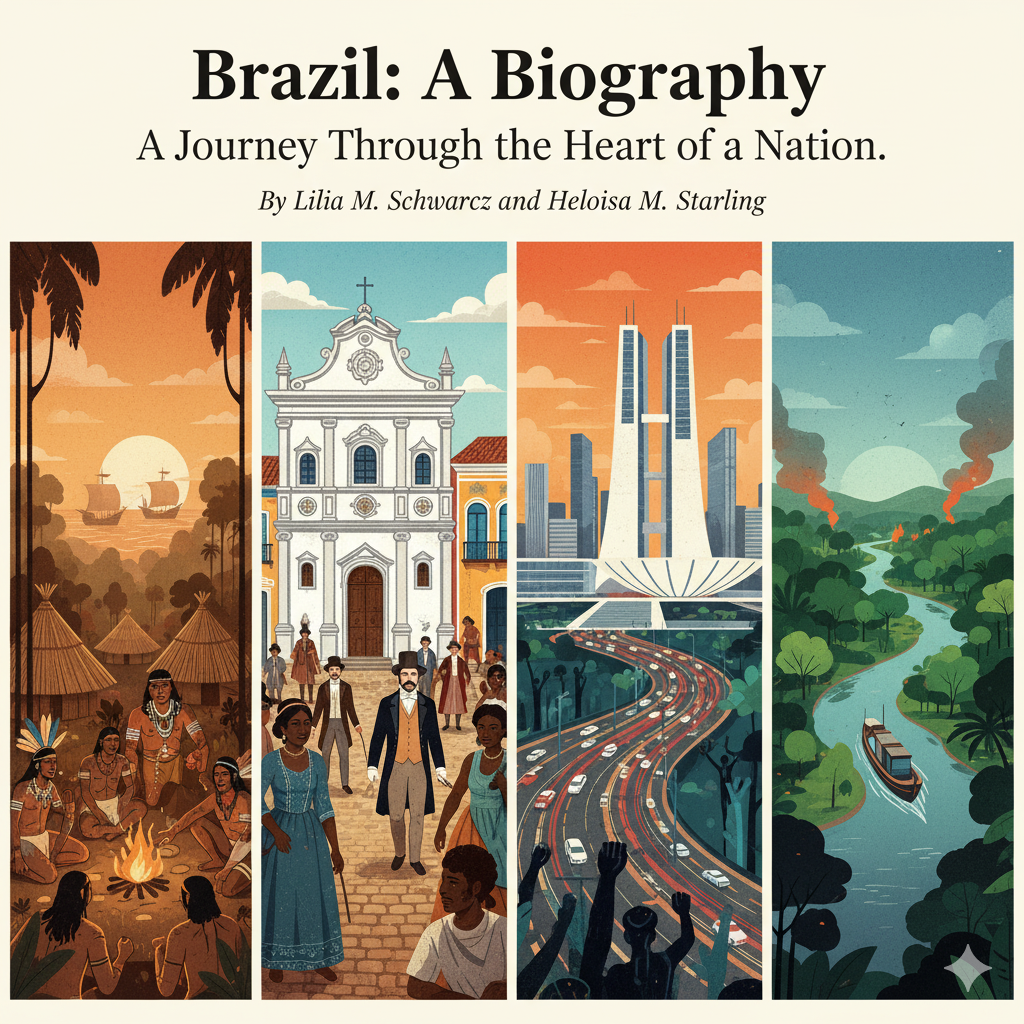Brazil: A Biography. A Journey Through the Heart of a Nation.
People usually picture Carnival when they think of Brazil. Soccer stars, samba beats, Amazon jungles. You know, the usual stuff. But there’s way more to it. This country’s story is super complicated, full of drama. Not many books nail that whole thing. Brazil: A Biography by Lilia M. Schwarcz and Heloisa M. Starling does though. It’s like they turned all that history into something you can’t put down.
The book came out in 2018. Right away, it became the spot to start if you want to get how Brazil ended up like this. It’s not some boring textbook. Reads more like a big story. Full of details that stick with you, smart breakdowns, voices from folks who were there.
From Indigenous Roots to Portuguese Conquest.
The writers kick off way before the Portuguese showed up in 1500. They talk about all these different indigenous groups in Brazil. Not just one big culture. More like a bunch of nations, each with their own ways, languages, knowledge. Starting there makes sense. It shows Brazilian history got messed up by colonization. Didn’t just begin with it.
Then the Portuguese ships hit the coast. That changed everything. The book digs into how it all started with sugar plantations, slavery, grabbing land. In Brazil, they brought in tons of enslaved Africans. More than anywhere else in the Americas. Millions of them. The authors lay it out straight. Brutal stuff. But they do it with some heart, keep it clear.
Empire, Abolition, and a Fragile Republic.
One cool part is how the book shows Brazil always pulling between getting better and staying unequal. The Empire started in 1822. Not just some old royal thing. It was mixed up. Modern in spots, but still running on slavery.
Slavery ended in 1888. Last place in the West to do it. You think that’d be a clean break. Nope. Schwarcz and Starling point out how the republic kicked off with the same problems hanging around. Freed people got nothing. No land, no rights, no way to make money. Elites kept running the show. They pull in quotes from letters, papers, memoirs. Makes it feel real, human.
Dictatorship, Democracy, and the Present Struggle.
Into the 1900s, Brazil’s politics went up and down like crazy. Populist guys like Getúlio Vargas. Then the 1964 coup, military rule for twenty years. The book doesn’t make it simple. Dictatorship wasn’t only bosses cracking down. There was resistance too. Art, secret groups fighting back.
Democracy came back in the 80s. Hopeful, but shaky. They cover Lula da Silva rising up, the Workers’ Party, Brazil getting big on the world scene in the 2000s. Then scandals hit, everything got polarized, Bolsonaro came along. Feels like it’s still happening now.
Why This Book Works.
What sets Brazil: A Biography apart is that mix of deep info and easy reading. These authors are serious historians. But they tell it like a story. Not just dates and fights. They connect culture, inequality, race stuff, politics. How it all ties together.
It’s honest too. Doesn’t sugarcoat Brazil. Or stick to stereotypes. Gets the contradictions right. Joy mixed with violence. People bouncing back, but inequality everywhere. Creativity, then crisis.
A Biography Worth Reading.
If Brazilian history is new to you, grab this one. It’s thorough, but not too much. Gives you the background to get what’s going on today. Amazon fires, protests, all that.
In the end, the book fits its title. Brazil comes off like a real person. Flawed. Fascinating. You can’t look away.


